Text
Mastering SaaS Success: A Comprehensive Guide to Essential KPIs
Unlock the secrets to SaaS success by mastering the key performance indicators (KPIs) that drive growth and profitability.
This comprehensive guide delves into the critical metrics every SaaS business needs to track, analyze, and optimize.
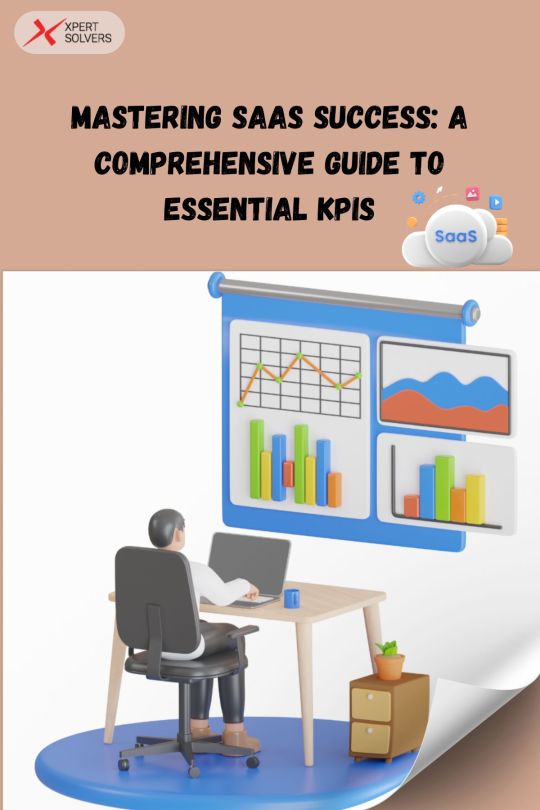
From customer acquisition cost (CAC) and customer lifetime value (CLV) to monthly recurring revenue (MRR) and churn rate, learn how to measure and interpret the data that matters most.
Gain actionable insights, set ambitious yet achievable goals, and propel your SaaS venture to new heights of success. Arm yourself with the knowledge and tools to make data-driven decisions, optimize your operations, and outpace the competition.
Visit us today to learn more about Unlocking SaaS Success: Essential KPIs to Track and Optimize Performance
0 notes
Text
Elevating Customer Success: Innovative Approaches to Enhance SaaS Retention Rates
Unlock the secrets to successful customer retention in the SaaS industry with our in-depth guide. Discover innovative approaches and best practices to reduce churn and increase customer loyalty.
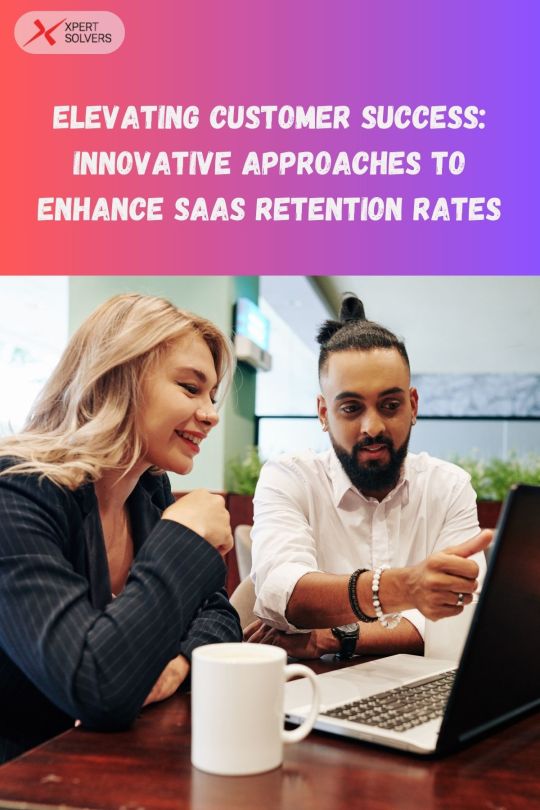
From data-driven insights to targeted retention campaigns, empower your SaaS business to retain customers and drive long-term growth.
Visit us today to learn more about Mastering Customer Retention: Proven Strategies to Reduce Churn in SaaS
0 notes
Text
Navigating SaaS Development Expenses: Strategies for Cost-Effective Solutions
Embark on a journey to understand the intricacies of SaaS development costs with our comprehensive breakdown guide. Explore strategies to optimize expenses, leverage agile methodologies, and minimize hidden costs in SaaS projects.
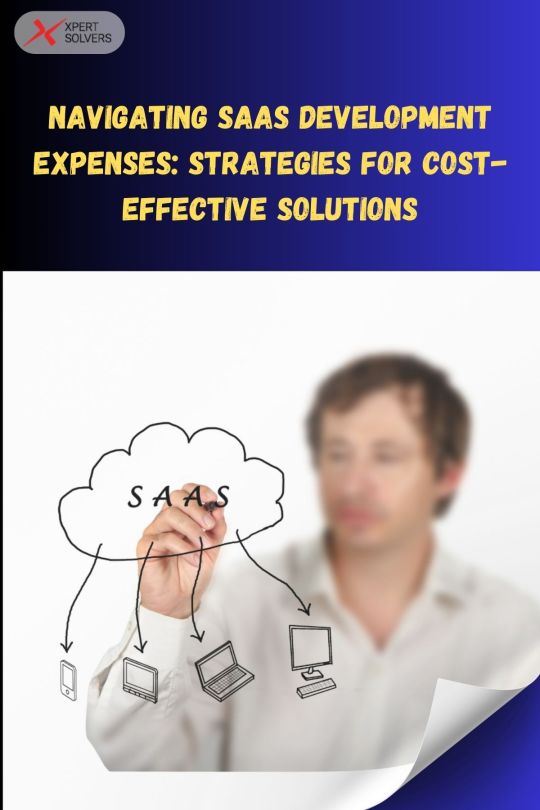
Learn how to make informed decisions, negotiate effectively, and build cost-effective SaaS applications that drive business growth.
0 notes
Text
Elevating Project Performance: Harnessing the Power of Remote SaaS Development
Uncover the game-changing benefits of integrating remote SaaS development into your projects. From improved communication to enhanced scalability, remote SaaS solutions offer a myriad of advantages for project success.
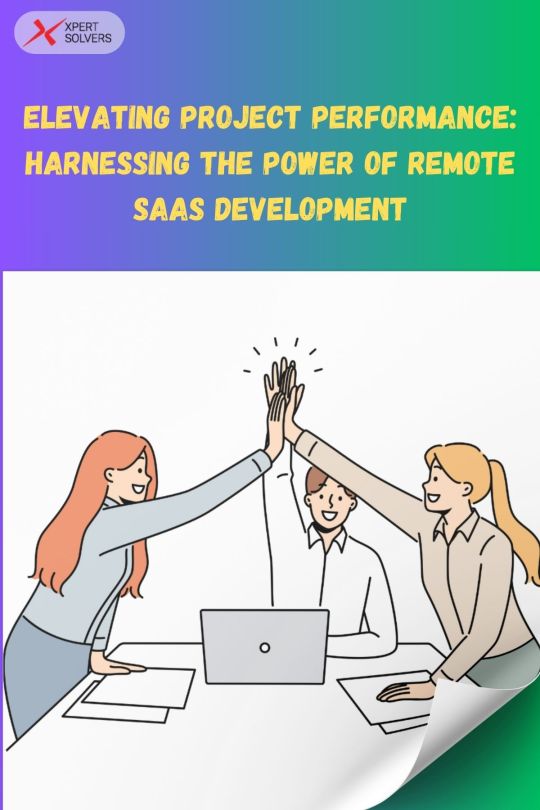
Learn how to optimize your workflows, empower your team, and drive efficiency with remote SaaS development.
Visit us today to learn more about Maximizing Project Efficiency: The Impact of Remote SaaS Development
0 notes
Text
Unlocking Success: The Definitive Guide to Selecting a Custom SaaS Development Partner
Delve into the intricacies of choosing the ideal custom SaaS development partner with our ultimate guide. From understanding your needs to evaluating expertise and aligning goals, this resource equips you with the knowledge to make a strategic decision.
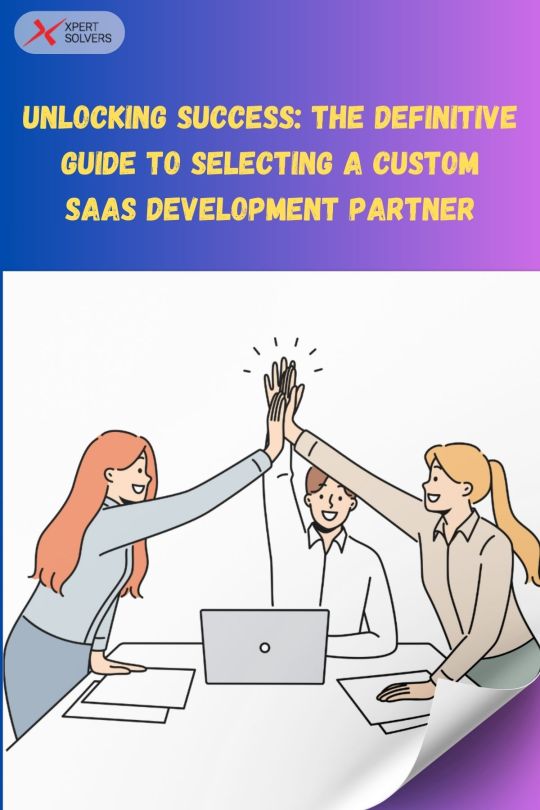
You can navigate the landscape of SaaS development partnerships confidently and set your project up for success.
Visit us today to learn more about Choosing the Right Custom SaaS Development Partner: An In-Depth Guide
0 notes
Text
The Essential Guide to Building Successful SaaS Apps
Discover the proven steps and strategies to develop scalable, user-friendly SaaS applications. From planning and design to deployment and beyond, this guide covers the key aspects of mastering SaaS development.
Learn from industry experts and build the cloud-based applications that drive business growth.

Visit us today to learn more about Mastering SaaS Development: A Step-by-Step Guide
0 notes
Text
Essential Strategies for Safeguarding User Data in SaaS Apps
Protecting sensitive user information is critical for the success and reputation of any SaaS business. In this in-depth guide, we share proven best practices and expert tips to secure your customers' data, comply with regulations, and build long-term trust.

From encryption and access controls to monitoring and incident response, learn the key elements of a robust data protection strategy for your cloud-based applications. Implement these measures to keep your users' information safe and give them peace of mind.
Visit us today to learn more about Strategies for Safeguarding User Data in SaaS Apps
0 notes
Text
Building a Winning SaaS Team: Essential Skills and Expertise for Success
In the fast-paced world of SaaS, building a high-performing team is essential for achieving success.
This in-depth guide from XpertSolvers outlines the critical skills and expertise required to form a successful SaaS team. From technical abilities to customer-focused approaches, discover how to develop a team that fuels growth and drives innovation.
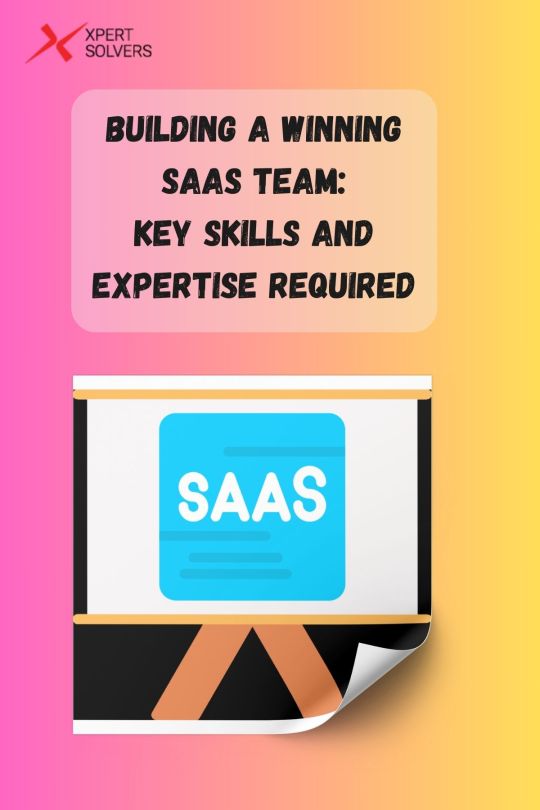
Explore expert advice on attracting top talent, fostering a collaborative environment, and utilizing advanced tools to maintain a competitive edge.
Whether you're launching a new startup or expanding an established company, these strategies will support your SaaS objectives and enable effective scaling.
If you need to learn more about the key requirements of building a Saas team then you can visit us today
#SaaSTeam#TechSkills#BusinessGrowth#TeamBuilding#Innovation#CustomerSuccess#XpertSolvers#SaaSStrategy#TechRecruitment
0 notes
Text
Revolutionizing Business Operations with Advanced ERP Software Development
The world of business is on the cusp of a transformation.
XpertSolvers invites you to explore the exciting frontier of ERP software development, where cutting-edge technologies are revolutionizing the way businesses operate.
Get ready to delve into the future, where AI-powered insights, robust cloud solutions, and secure blockchain integration redefine what's possible for your organization.
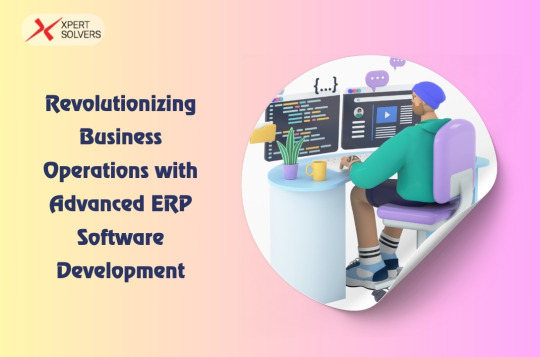
The Future of ERP: A Symphony of Innovation
AI-Driven Insights – Unlocking the Power of Your Data: Imagine an ERP system that acts as your strategic partner, analyzing vast amounts of data to provide actionable insights.
With AI in ERP, your system becomes a predictive powerhouse, enabling you to anticipate market trends, automate routine tasks, and make data-driven decisions with unparalleled confidence.
Cloud Solutions – Scalability and Accessibility Redefined: Legacy ERP systems are a thing of the past. Cloud-based solutions offer unparalleled flexibility and scalability, allowing your ERP system to grow alongside your business.
Access your data securely from anywhere, anytime, and empower your workforce to collaborate seamlessly – the future of ERP is borderless.
Blockchain Technology – Building Trust, One Block at a Time: The secure and transparent nature of blockchain technology is transforming ERP development.
From secure supply chain management to enhanced financial transaction security, blockchain fosters trust and transparency across your entire business ecosystem.
Business Optimization with User-Centric Design: At the heart of any successful ERP system lies a user-centric design. The future of ERP prioritizes intuitive interfaces and functionalities tailored to user roles and workflows.
This ensures seamless adoption, empowers your workforce to navigate the system with ease, and maximizes user productivity.
Mobile ERP: Unleashing Productivity on the Go: The modern workforce is constantly on the move. Mobile-optimized ERP solutions equip your employees with the tools they need to succeed anywhere, anytime.
Access real-time data, manage tasks, and collaborate with colleagues – all from the palm of their hands.
This fosters agility and empowers your workforce to seize opportunities, even when they're away from the office.
The Future is Now:
Don't wait to embrace the transformative power of advanced ERP software development. XpertSolvers can be your trusted guide on this exciting journey.
We'll help you leverage cutting-edge technologies to streamline operations, enhance security, and empower your workforce with a user-centric ERP solution that drives business growth and efficiency.
Embrace the future of business – explore the power of advanced ERP software development with XpertSolvers today!
#ERP Evolution#Artificial Intelligence#Cloud Solutions#Blockchain Technology#Business Optimization#Future of ERP#Mobile ERP#User Experience in ERP
0 notes
Text
Elevate Your Business Operations: Unleashing the Power of Custom ERP Software Development
In today's dynamic business environment, staying ahead of the curve requires agility, collaboration, and a constant drive for improvement.
Custom ERP software development emerges as the game-changer, empowering businesses to elevate their operations and propel themselves toward industry leadership.
This guide explores the transformative potential of custom-built ERP solutions, revealing how they can redefine the way your organization functions.
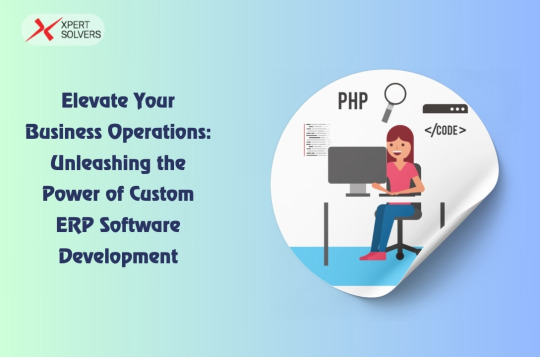
Unlocking the Competitive Edge with Custom ERP:
Off-the-shelf ERP solutions can feel like a forced fit – offering generic functionalities that may not perfectly align with your unique needs.
Custom ERP development breaks free from these limitations, offering a multitude of advantages:
Revolutionized Operations: Custom ERP software acts as the central nervous system of your organization, seamlessly integrating various departments like finance, inventory, human resources, and sales.
This fosters streamlined workflows, eliminates data silos, and empowers your teams to collaborate more effectively. The result? A well-oiled operating machine drives increased efficiency and productivity.
Enhanced Team Collaboration: Custom ERP systems can be tailored to facilitate seamless communication and information sharing across departments.
This fosters a collaborative work environment where teams can work together more efficiently, share best practices, and achieve common goals.
Unlocking Growth Potential: As your business scales, your needs evolve. Custom ERP software, designed with scalability in mind, can grow alongside your organization.
Your development partner can build in the flexibility to add functionalities and user licenses as needed, ensuring your ERP system remains a valuable asset throughout your growth journey.
Industry-Specific Advantage: Every industry has its own set of challenges and opportunities. Custom ERP development empowers you to address these with tailored solutions.
The system can be designed to integrate with industry-specific tools and automate processes unique to your vertical, giving you a significant edge over competitors who rely on generic software.
User-Centric Design for Higher Adoption: Off-the-shelf ERP systems often come with a steep learning curve.
Custom development allows you to create a user-friendly interface that aligns with your existing workflows and user roles.
Intuitive functionality and a familiar layout foster higher user adoption rates, ensuring your employees can leverage the full power of the system from day one.
Investing in Transformation:
Custom ERP software development is an investment in your business's future. It empowers you to streamline operations, break down departmental barriers, and unlock your organization's full potential.
With a tailored ERP system in place, you can gain a competitive edge, foster a collaborative work environment, and pave the way for sustainable growth.
Embrace the power of custom ERP development and elevate your business operations to new heights.
0 notes
Text
Unlocking Your ERP Potential with the Right Partner:
A reliable partner acts as your trusted guide, navigating you through the entire ERP implementation journey, from initial planning to successful deployment and beyond.
This article empowers you to make an informed decision by outlining the key qualities to seek in your ERP development partner.
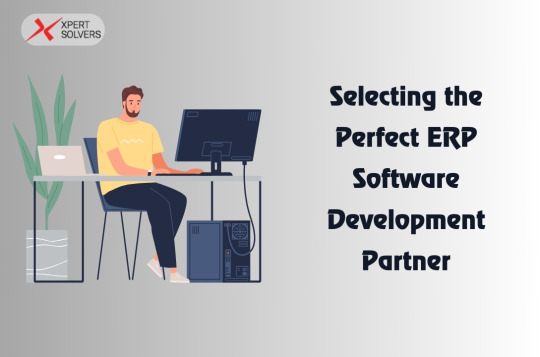
Qualities of a Stellar ERP Development Partner:
Extensive Experience and Proven Track Record: ERP development is a specialized field. Look for a partner with a wealth of experience in developing and implementing ERP solutions for businesses of your size and within your industry.
Their proven track record serves as a testament to their expertise and ability to deliver successful projects.
Deep Understanding of Your Industry: Every industry has its own unique set of challenges and operational processes. Choose a partner who possesses a deep understanding of the specific needs and regulations within your vertical.
This industry-specific knowledge ensures they can tailor the ERP system to seamlessly integrate with your existing workflows and maximize its impact on your business.
Technical Expertise and Innovation: A robust ERP system requires a strong technical foundation. Evaluate the company's development team, their technical skillset, and their familiarity with the latest ERP technologies.
Look for a partner who embraces innovation and stays current with industry trends to ensure your ERP system leverages the latest advancements.
Project Management Capabilities: A successful ERP implementation requires meticulous planning and execution.
Choose a partner with a proven project management methodology that prioritizes clear communication, timely delivery, and adherence to your budget. Effective project management ensures a smooth and efficient implementation process.
Delivery of Customized Solutions: A one-size-fits-all approach doesn't work for ERP solutions. Select a partner who understands the importance of customization.
They should be adept at analyzing your business needs and tailoring the ERP system to seamlessly integrate with your existing processes and workflows.
Open Communication and Collaborative Approach: Building a successful partnership requires open communication and transparency.
Choose a partner who actively listens to your concerns, readily shares information, and fosters a collaborative environment throughout the entire development and implementation process.
This collaborative approach ensures the end product aligns perfectly with your business objectives.
Visit us today to get more insights here at "Choose the Right ERP Software Development Company"
#ERPDevelopmentPartner#ERPImplementationSuccess#IndustryExpertise#CustomizedSolutions#BusinessAlignment#ERPDeployment#OpenCommunication#CollaborativeApproach
0 notes
Text
Unveiling the Power of ERP Software: Transforming Businesses with Enterprise Resource Planning
In the fast-paced world of business, streamlining processes, maximizing productivity, and achieving sustainable growth are top priorities. ERP software emerges as the game-changer, empowering businesses of all sizes to unlock their full potential.
This guide explores the transformative power of ERP systems, delving into their functionalities, benefits, and the impact they have on modern enterprises.
Streamlining Business Processes:
ERP software acts as the conductor of your business orchestra, seamlessly integrating various departments and functions. Imagine finance, accounting, inventory, human resources, and customer relationship management (CRM) all working in perfect harmony. This translates to:
Eliminated Data Silos: ERP breaks down departmental barriers by providing a single platform for all your business data. This fosters real-time data visibility and collaboration across teams, leading to faster decision-making and improved problem-solving.
Enhanced Collaboration: Streamlined workflows and transparent data access empower teams to collaborate more effectively. Improved communication and knowledge-sharing across departments foster a culture of innovation and drive better business outcomes.
Automated Tasks: ERP automates many of the repetitive tasks that can bog down your employees. This frees them up to focus on more strategic initiatives, improve customer service, and contribute to higher-value activities within the organization.
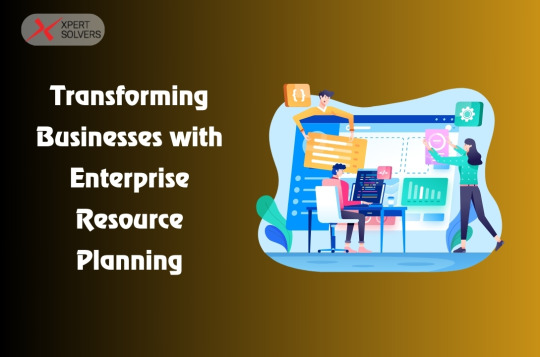
Exploring ERP Implementation:
This guide doesn't just explain the benefits – it empowers you to take action. Learn about the key considerations for a successful ERP implementation, including:
Needs Assessment: Identify your specific business challenges and goals to determine the functionalities that best align with your strategic objectives.
Software Selection: Research different ERP vendors and choose a solution that offers the features and functionalities that cater to your unique industry and size.
Data Migration and System Configuration: Develop a robust data migration strategy to ensure a smooth transition and configure the ERP system to match your specific workflows and user permissions.
Change Management and Training: Implementing a new system requires user adoption. Develop a comprehensive change management plan and provide thorough training to your employees.
Unlocking Growth with ERP:
By leveraging the power of ERP software, businesses of all sizes can achieve significant growth. Improved operational efficiency, data-driven decision-making, and enhanced collaboration all contribute to a competitive edge in the marketplace.
ERP software is an investment in the future of your organization, paving the way for sustainable growth and long-term success.
Explore our comprehensive resources to learn more about ERP software and how it can benefit your business. We offer free consultations to help you assess your needs and find the perfect ERP solution.
Visit us today to get more insights here at "What is ERP Software"
#ERPSoftware#EnterpriseResourcePlanning#BusinessOperations#Efficiency#DigitalTransformation#DataManagement#InformedDecisions#ProductivityBoost#CostSavings#BusinessGrowth
0 notes
Text
Unsung Heroes of Resource Management: Unveiling the Role of an ERP Developer
In today's competitive business environment, efficient resource management is the cornerstone of success. Every organization strives to optimize resource utilization, streamline operations, and gain a vital edge.
Behind the scenes, silently contributing to this success, lies the unsung hero – the ERP developer.
This article explores the critical role of ERP developers, shedding light on their expertise and the development process they undertake to create and maintain the software that empowers your organization.
The Vital Role of an ERP Developer: An ERP developer is the architect of your Enterprise Resource Planning (ERP) system. This powerful software acts as a central hub, integrating various departments like finance, inventory, and human resources, into a single, unified platform.
ERP developers possess the technical prowess to design, develop, and maintain this complex system, ensuring it streamlines your operations and empowers efficient resource management.
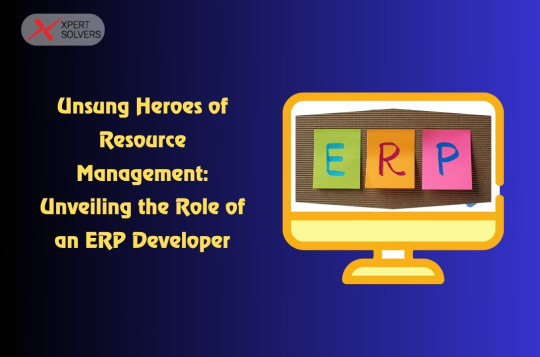
Skills that Define an ERP Developer: ERP developers are a unique mix of technical specialists and business process enthusiasts. They possess the following key skills:
Technical Expertise: ERP developers are fluent in various programming languages and possess a deep understanding of ERP architecture.
They can design and develop intricate software modules that handle critical business functions. Think of them as the engineers who build the engine of your ERP system.
Integration Specialists: Modern business operations thrive on connectivity. ERP developers ensure seamless integration of your ERP system with other software like CRM or marketing automation platforms.
This eliminates data silos and fosters a unified data flow, providing a holistic view of your resources and enabling data-driven decision-making.
Process Optimization Aficionados: ERP developers understand that optimized
Skills that Define an ERP Developer: ERP developers are a unique mix of technical specialists and business process enthusiasts. They possess the following key skills:
Technical Expertise: ERP developers are fluent in various programming languages and possess a deep understanding of ERP architecture.
They can design and develop intricate software modules that handle critical business functions. Think of them as the engineers who build the engine of your ERP system.
Integration Specialists: Modern business operations thrive on connectivity. ERP developers ensure seamless integration of your ERP system with other software like CRM or marketing automation platforms.
This eliminates data silos and fosters a unified data flow, providing a holistic view of your resources and enabling data-driven decision-making.
Process Optimization Aficionados: ERP developers understand that optimized workflows are the backbone of efficient resource management. They analyze existing business processes and identify areas for improvement.
By leveraging their coding skills, they configure the ERP system to automate tasks, eliminate redundancies, and improve data accuracy. This translates to a more streamlined operational environment and maximized resource utilization.
Communication and Collaboration: Building an ERP system requires close collaboration between various stakeholders.
ERP developers are adept communicators who can translate technical jargon into business terms, ensuring clear understanding between developers, business analysts, and end-users. Their collaborative spirit fosters a successful implementation process.
The Development Process Unveiled: Building and maintaining a robust ERP system is a multi-stage journey. Here's a breakdown of the key phases involved:
Needs Assessment and System Selection: The initial step involves a thorough analysis of your business needs and challenges.
ERP developers work alongside business analysts to identify the functionalities within the ERP system that best align with your strategic objectives.
Custom Development and Configuration: No two businesses operate exactly alike. ERP developers leverage their coding skills to customize the ERP system to fit your specific workflows and user permissions.
This ensures optimal functionality within the unique context of your organization.
Integration and Data Migration: Connecting your ERP system with existing software requires careful planning and execution.
ERP developers act as integration specialists, ensuring seamless data flow between platforms and minimizing disruptions during the migration process.
Testing and Deployment: Before rolling out the system to your entire team, rigorous testing ensures the ERP functions flawlessly. ERP developers work alongside testers to identify and rectify any bugs or glitches, guaranteeing a smooth system launch.
Training and Ongoing Support: A successful ERP implementation hinges on user adoption. ERP developers play a crucial role in creating user training materials and providing ongoing support to ensure your employees can leverage the system's full potential.
This training empowers your team to utilize the ERP system effectively, maximizing its impact on resource management.
By understanding the critical role of ERP developers and the intricate development process they undertake, you can appreciate the silent heroes who empower your organization's efficient resource management and propel your business toward sustained success.
Visit us today to get more insights here at "What Does An ERP Developer Do"
0 notes
Text
The Unsung Heroes of Business Efficiency: Unveiling the Diverse World of ERP Developers
Behind the scenes of every thriving business lies a silent force – a robust Enterprise Resource Planning (ERP) system.
This powerful software orchestrates various departments, streamlines workflows, and unlocks valuable insights, ultimately propelling your organization toward success.
But who are the unsung heroes crafting and maintaining this critical software?
The answer lies in the diverse world of ERP developers. These IT professionals possess a unique blend of technical expertise and business acumen, enabling them to build, integrate, and maintain the ERP system that fuels your efficiency.
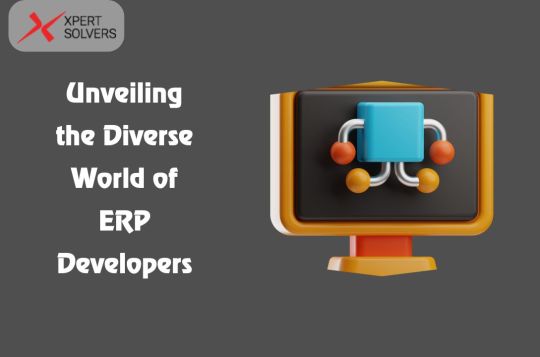
Let's delve deeper into the different types of developers who contribute to the success of your ERP system:
Core ERP Developers: Imagine the ERP system as a complex machine. Core ERP developers are the engineers who build its engine.
They possess a deep understanding of the ERP architecture and programming languages used to create the underlying functionalities that power the system.
Think of them as the backbone of the ERP system, responsible for its core functionalities like finance, accounting, inventory management, and production planning.
Integration Developers: Modern businesses operate in a connected ecosystem. Integration developers ensure your ERP system seamlessly interacts with other software you use, such as customer relationship management (CRM) or marketing automation tools.
They create bridges between these platforms, allowing for effortless data flow and eliminating manual data entry, ultimately saving time and minimizing errors.
Front-End Developers (UI/UX Developers): A user-friendly interface is crucial for user adoption and maximizing the benefits of your ERP system.
Front-end developers, also known as UI/UX developers, focus on creating a visually appealing and intuitive user interface. They ensure the system is easy to navigate, fostering efficient interaction with the software for your employees across all departments.
Customization Developers: Every business has its unique way of operating. Customization developers understand this individuality.
They leverage their coding skills to tailor the ERP system to your specific workflows and business processes.
Whether it's automating tasks specific to your industry or configuring reporting features to align with your management needs, customization developers ensure the ERP system functions optimally within the context of your organization.
Business Process Analysts: The bridge between the business world and the realm of technical development lies in the hands of Business Process Analysts.
These individuals act as translators, analyzing your current business processes, pinpointing areas for improvement, and working closely with developers to ensure the ERP system aligns with your strategic objectives.
They translate your business needs into technical specifications, ensuring the developers build a system that truly empowers your organization.
By working together as a team, these diverse ERP developers orchestrate the entire ERP development lifecycle.
They possess the technical prowess to build a robust system, the business acumen to understand your unique needs, and the collaborative spirit to ensure a successful implementation.
The next time you experience the efficiency and insights provided by your ERP system, remember the unsung heroes – the ERP developers – who silently work behind the scenes to fuel your business success.
To get more in-depth insights you can visit "What Are The Different Types Of ERP Developers"
#ERP development team#ERP software development#enterprise resource planning#business process automation
0 notes
Text
Streamline Your Operations and Gain a Competitive Edge: The Ultimate Guide to ERP Implementation
Is your business bogged down by inefficient processes, fragmented data, and limited visibility into your operations?
Are you struggling to keep up with the competition in today's fast-paced marketplace? An Enterprise Resource Planning (ERP) system can be your saving grace!
This comprehensive guide unveils the secrets to a strategic ERP implementation, empowering you to streamline operations, boost productivity, gain a competitive edge, and unlock the full potential of your organization.
An ERP system acts as a central hub, integrating all your core business functions – from finance and accounting to inventory management, human resources, and customer relationship management – into a single, unified platform.
This eliminates data silos, fosters real-time collaboration, and provides a holistic view of your entire operation.
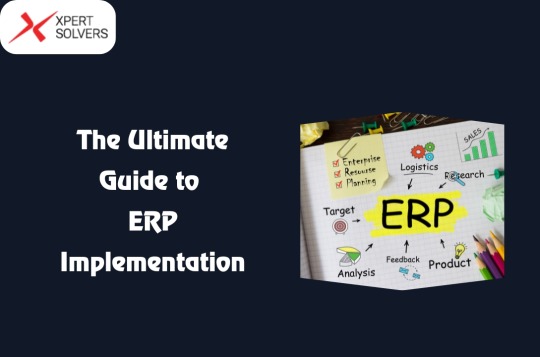
However, implementing an ERP system requires careful planning and execution. This guide walks you through a step-by-step process for a successful ERP implementation:
Needs Assessment and System Selection: The first step is to identify your specific business needs and challenges. Conduct a thorough evaluation of your existing systems and processes to determine the functionalities that are most critical for your organization.
Research different ERP vendors and choose a solution that offers the features and functionalities that best align with your strategic goals.
Data Migration and System Configuration: Developing a robust data migration strategy is crucial to ensure a smooth transition and minimize disruptions.
Cleanse and standardize your data before migration to avoid errors and ensure data integrity within the new system. Configure the ERP system to match your specific workflows and user permissions.
Change Management and User Training: Implementing an ERP system is a significant change for your organization.
A well-defined change management plan is essential for user adoption. Communicate effectively with your employees, provide comprehensive training on the new system, and encourage feedback throughout the process.
Integration and Automation: ERP systems come with built-in integration capabilities, allowing you to seamlessly connect them with your existing applications and tools.
Leverage these capabilities to automate manual tasks and streamline workflows across departments.
Ongoing Maintenance and Optimization: Your ERP system is an investment that requires ongoing attention.
Regularly monitor system performance, identify opportunities for improvement, and implement updates and upgrades to ensure your system remains optimized and secure.
By following this comprehensive guide and partnering with a qualified ERP implementation team, you can transform your business operations.
An ERP system empowers you to make data-driven decisions, improve collaboration, gain real-time insights, and achieve significant improvements in efficiency and productivity.
Visit Us Today to learn more about ERP implementation strategies from our guide
0 notes
Text
Did Your MVP Succeed? Unveiling Key Performance Indicators
Measuring MVP success is crucial for making informed decisions.
This article dives deep into key performance indicators (KPIs) and how to use them to assess your MVP's performance effectively.
Learn how to set success criteria and track progress to optimize your MVP for future achievements.
Visit us today to learn more about Measuring The Success Of Your MVP
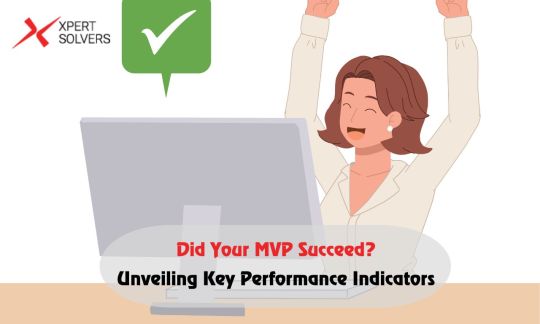
0 notes
Text
MVP Development Done Right: Key Mistakes to Steer Clear Of
Ensure a smooth MVP development process by avoiding these critical mistakes!
This article dives into common pitfalls to watch out for, such as neglecting user feedback, prioritizing the wrong features, and failing to manage technical debt.
Learn how to develop a successful MVP the right way.
Visit our website today to learn more about the Biggest Mistakes To Avoid When Developing An MVP
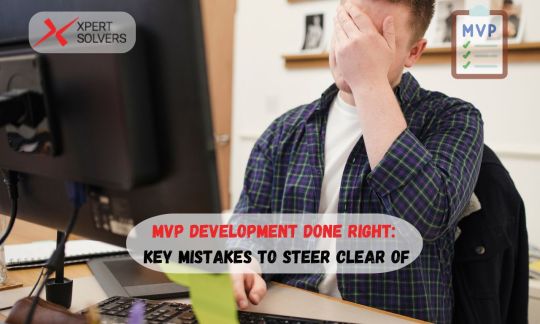
0 notes